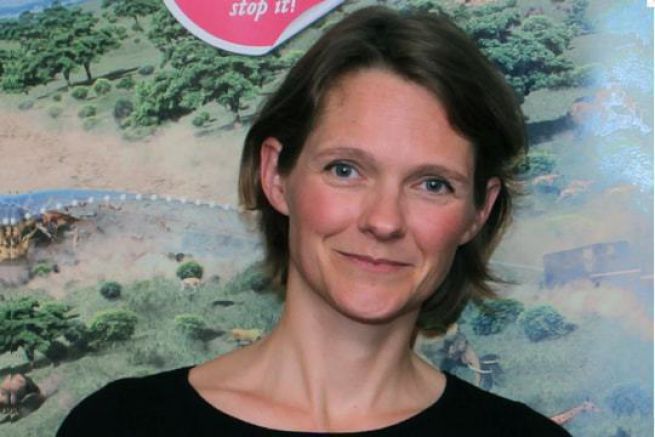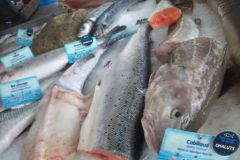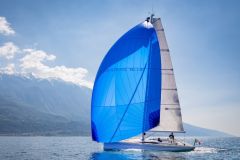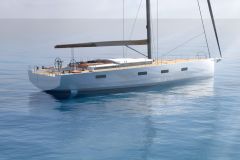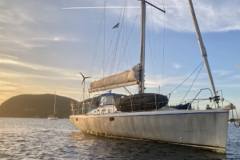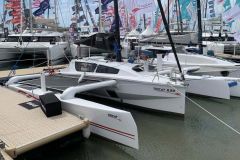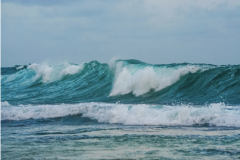Claire Nouvian is the founder and director of Bloom, a non-profit association founded in 2005, whose goal is to protect the ocean and marine species while maximizing sustainable employment in fishing and aquaculture. In this sense, the association tries to preserve artisanal fishing and to distinguish it from industrial fishing. She explains how Bloom has just won another victory over deep-sea trawling.
How long have you been fighting to stop deep-sea trawling?
Since 2000, I have had deep-sea fishing on my radar, I have written a book on the subject Abysses and an exhibition of the same name was created in 2006 (still current) on the devastation of the deep-sea system by trawlers. Since 2008, I have been actively pleading with the government to stop the complete aberration that is deep-sea fishing, and I am face to face with the industry.
Scapêche will stop deep-sea fishing by 2025, is this a victory for you?
Intermarché had signed a truce in 2014 with a compromise to stop fishing beyond 800 m depth. This was already a big step forward for them, as their fishing technique was working on deep water fishing and species. We didn't want to settle for that, but they needed time to make the change. Seeing them moving in the right direction to set an example we gave them some time.
And it has paid off since the grouping of Musketeers announced that its fishing fleet, Scapêche, will gradually stop fishing deep-sea species by 2025. The announcement is hyper positive in the deep sense.
It must be said that they had a huge pressure from Bloom with 900,000 petitions signed. A figure and a scale never reached for an environmental petition: social networks, disembarking in stores to complain� Intermaché understood that it had to change internally to ensure the future of the brand and restore trust with customers. And the arrival of a new management team aware of the major environmental issues within the Les Mousquetaires Group has played a major role in the balance.
2025 may seem far away, but on the scale of an industrial fleet it is not so disappointing. Already, they show the ambition to get out of deep-sea fishing and to go towards a sustainable fishery, where the fish can reproduce, the seabed is not destroyedâeuros¦ They close the story of this unfortunate and harmful adventure of deep-sea fishing.
What's next, convince other fishing fleets?
Deep-sea fishing in France concerns mainly Intermarché. There is another vessel that carries out 1/3 of its activity in deep-sea fishing, the Cap Saint George, which belongs to the company Euronor, based in Boulogne-Sur-Mer. It fishes for saithe - whose stocks are not threatened - and we have also asked them to stop this fishing technique. In any case, if it continues on this path, Euronor will see itself closed to the doors of large-scale distribution.
The bulk of the work in Europe is now focused on Spain, which fishes in international deep waters just across the border. The big problem is that the godmother of the biggest industrial fishing lobby Blue Fish (a consortium of industrialists in which there are also Spaniards), Isabelle Thomas, is also a French socialist deputy and rapporteur of the regulation. However, she defends the position of Spain (and the Spanish government, although right-wing) and shows a form of disloyalty to the French deputies and the movements of Intermarché to disengage from deep-sea fishing.
This French deputy is negotiating a regulation (part of which advocates the exit of international waters from the regulation) that will only apply to French fishermen and not to the Spanish (since they fish in international waters) who have the largest fishing fleet. However, the Spanish fleet (which is also the most subsidized) is very destructive, with a logic of armada and wild capture of resources at the global level. It is therefore in breach of the European regulation that establishes that a regulation must concern all European fishermen. It confirms Spain in its status of leader and if the international waters are taken out of the regulation a competitive advantage will be given to Spain, which goes against European law. We do not have the right to favor one fleet over another and this is what is being done.
In the end, we still manage to make things happen by remaining transparent and honest. We are here to tell things as they are and to go in the right direction. My life is devoted to the reform of deep-sea fishing!
We will have to wait for the Trilogue (April 26, 2016) to find a European agreement on the regulation which is a set of measures to protect vulnerable ecosystems. We continue our active lobbying despite our small team and have to face 28 member states!
Coming back to Scapêche, how will you follow the process?
It is not us directly who ensure the follow-up since we are only prescribers. We have asked the Scapeche to stop deep-sea fishing, who themselves have called on the sustainable development firm Synergence (now Deloitte Sustainable Development) which helps them in their operational implementation.
We do not want to become a firm and we do not have a profit-making vocation since our work is based on associations. We do have access to the economic data of the Mousquetaires group and we follow up with the Deloite firm, which has set up a sustainable development roadmap. They consult us regularly to try to find operational and better solutions, so that the fleet becomes exemplary.
